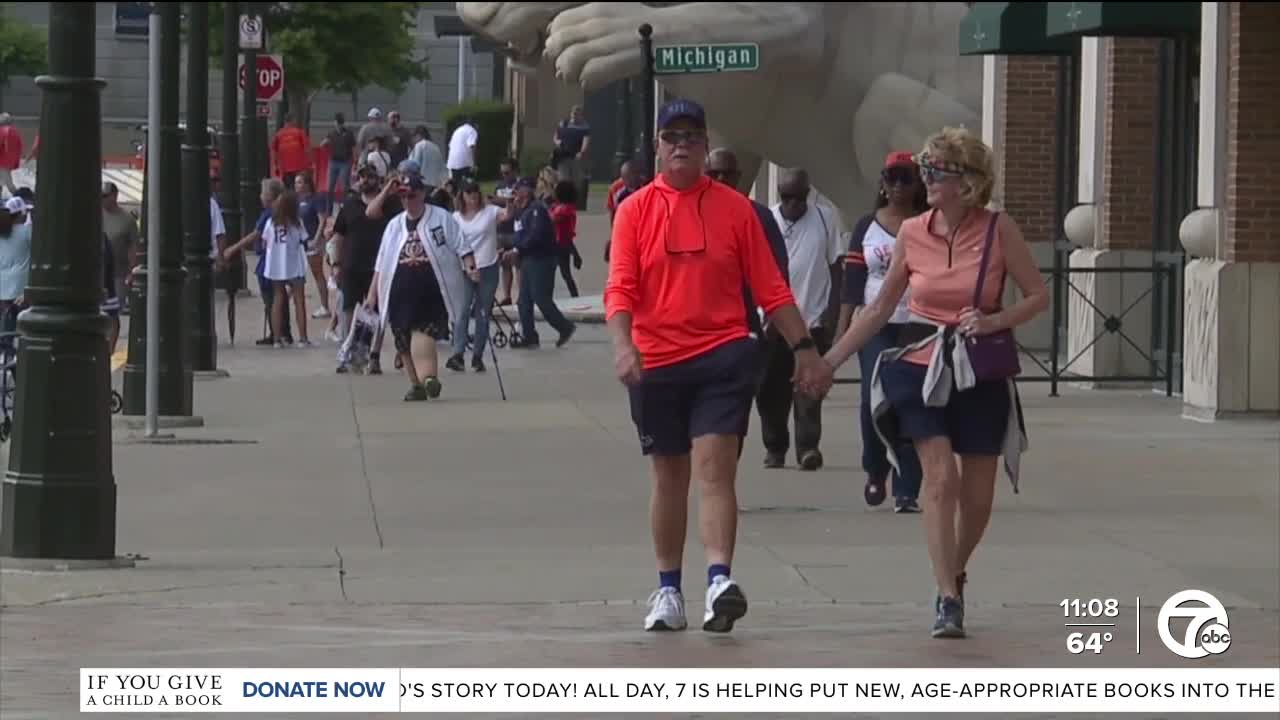DETROIT (WXYZ) — Detroit city leaders are exploring a new revenue stream that could generate up to $47 million annually through an admission tax on concerts and sporting events, according to a study released Wednesday.
The tax would require action from the Michigan Legislature, Detroit City Council and a vote from Detroit residents before implementation. Currently, 34 other states allow similar local admission taxes.
Watch Brett Kast's and Ryan Marshall's video report below:
The Citizens Research Council of Michigan study shows a 3% tax could bring in roughly $14.1 million per year, while a 10% tax could generate $46.9 million annually for the city.
"Not surprised, but encouraged," Detroit City Councilmember Gabriella Santiago-Romero said.

Santiago-Romero is among the city leaders supporting the possibility of an admission tax. Detroit City Council recently commissioned the study to examine how other similarly sized cities handle this type of taxation.
Eric Lupher, president of the Citizens Research Council of Michigan, conducted the research examining comparable cities across the nation like Cincinnati, Indianapolis, Chicago, Columbus and more.
"In the big picture of Detroit's $1 billion-plus budget, this ($46.9 million) is pretty insignificant, but if it can be done to help public safety or public property tax relief, then it could be very helpful," Lupher said.
Read the research study below:
Research study on admission tax revenue in Detroit by WXYZ-TV Channel 7 Detroit
The study found that admission taxes don't typically change consumer behavior in other markets.
"Looking at other cities, it doesn't seem people change behaviors because of these taxes," Lupher said.

I spoke with Detroit Tigers fans outside Comerica Park and most expressed support for the proposed tax. Jim Wright, a Tigers fan from Harrison Township, said the tax wouldn't prevent him from attending games.
"If they put a small tax on that as a city surcharge kind of thing, if it would help people, I don't think there's anything wrong with that," Wright said. “I think it’s a great idea, but that’s me.”

Johnathan Randle, a Tigers fan from Detroit, also supports the idea.
"It's been a great privilege to come to Tigers games, Lions games,” Randle said. "I think everyone has to have a shared investment into the city because you have everyone coming from Oakland, Macomb, various counties and surrounding areas.”

Joe Clifford, who traveled from Ludington to attend Wednesday's Tigers game, said the tax wouldn't significantly impact fans.
"I come down here a few times a year. I don't think it's really going to hurt anybody," Clifford said. “Taxes are taxes, nobody likes them, but how do we figure it out?”

The study outlined several potential uses for the revenue, including creating a fund to attract more events, helping pay for city services or reducing Detroit property taxes by as much as 25%.
"Detroit has some of the highest property tax rates in the nation, so anything that can be done to lower that rate would be important," Lupher said. "Maybe about a quarter of what people pay for city taxes could be alleviated because of this.”
Santiago-Romero emphasized the potential benefits for city services and infrastructure.
"We see what it can do, we can invest it into our services in the city to make it more clean, more safe, more welcoming for everyone," Santiago-Romero said. "A lot of us want to make sure that we have city services that work, making sure we have our garbage being picked up on time, that we have the streetlights where they need to be, that our viaducts are lit.”

While Santiago-Romero says most of city council supports the proposal, implementation requires the Michigan Legislature to change state law allowing this form of local taxation.
"Please legislators, please help give us local control, so we're able to do things like this," Santiago-Romero said. "It's not about just Detroit, but I think more cities should be asking for this kind of power and control, so we can have taxes like these."
The Citizens Research Council plans to conduct a follow-up study examining what a sales tax on these events could mean for the state.
—————
This story was reported on-air by a journalist and has been converted to this platform with the assistance of AI. Our editorial team verifies all reporting on all platforms for fairness and accuracy.






